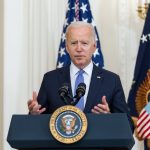Health and Human Services Secretary Robert F. Kennedy Jr. is taking the heat for a monumental shake-up at the Department of Health and Human Services (HHS), which will see an impressive 20,000 positions vacated. As the federal workforce undergoes a trimming under President Trump’s initiative, Kennedy assures that not a single front-line warrior will be disenfranchised; instead, it’s the clerical excess that’s on the chopping block. Apparently, Kennedy believes that the bureaucratic bloat is what’s really hounding the health of Americans, and he’s going straight for the administrative jugular.
The plan is to slash HHS down from a hefty 82,000 employees to a much more manageable 62,000, with 10,000 layoffs directly through cutbacks and another 10,000 offered tempting buyouts and early retirements to accelerate the exodus. Kennedy claims that the restructuring effort—while certainly “painful”—is a necessary step toward efficiency. He paints a vivid picture of 100 communications departments and 40 procurement teams existing side by side in a tangled mess of red tape, none of which are on speaking terms. Sounds like a classic case of government gone wild.
Kennedy is promoting a vision of a streamlined HHS that will focus on a new mantra: Making America Healthy Again. He details a restructuring that aims to consolidate the agency from 28 divisions into a sleeker 15. In a world where government departments don’t even talk to one another, Kennedy’s focus seems better directed on reducing even more redundancy. One wonders how these divisions even operate—like a family reunion with everyone telling their own stories with zero coordination.
RFK Jr. says HHS cuts will target administrators, not front-line workers https://t.co/AzPyP9vZnI
— The Washington Times (@WashTimes) March 28, 2025
Naturally, the Democrats are in an uproar, arguing that this overhaul will be the death knell for essential health services. Critics raise alarm bells about the potential impact on disease control efforts, worrying that the cuts will hinder the government’s ability to combat whatever health crisis lurks around the corner. With recent concerns over bird flu and the resurgence of measles, they argue that Kennedy’s department is taking one giant leap for bureaucratic inefficiency, underestimating the importance of a well-staffed agency.
Nonetheless, Kennedy reassures the public that popular programs like Medicaid and Medicare will remain safe from the rebarbative scythe of budget cuts. He insists that the restructuring will not tamper with these services; rather, the focus will shift towards eradicating chronic illness and attacking environmental toxins head-on. One can only hope that this shift doesn’t become merely another bureaucratic slogan, floating aimlessly through the halls of HHS while the real issues continue to fester. If Kennedy is truly committed to his vision, it should be interesting to see what roles and priorities emerge from this political reorganization.




